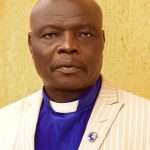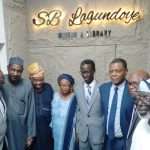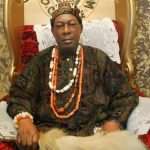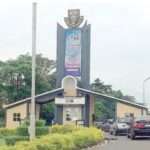


In an age where there is a concerted effort to promote unity and inclusivity among diverse populations, the echoes of divisive ideologies from the past remind us of the urgent need to confront old prejudices. Pieter Willem Botha, the former Prime Minister of apartheid South Africa, famously articulated beliefs rooted in the racist ideologies of his time, suggesting that Black individuals were inherently incapable of self-governance. This perspective, steeped in hatred and bigotry, sought to justify the oppressive structures of apartheid, reinforcing stereotypes that have lingered on through generations. Today, as Nigeria grapples with complex issues of governance, corruption, and ethnic division, Botha’s rhetoric serves as a stark warning of the dangers inherent in such ideologies.
Botha’s assertions about the incompetence of Black leadership can be linked to Nigeria’s current divisive rhetoric, particularly among political leaders who perpetuate the notion that certain ethnic groups cannot govern effectively. Such sentiments fuel feelings of insecurity and mistrust, leading to a vicious cycle of violence and discrimination. In Nigeria, political discourses often echo Botha’s ideology, using inflammatory language that exploits ethnic identities to justify exclusion and marginalisation. This rhetoric not only undermines public trust in democratic institutions but also reinforces corruption and power struggles, as leaders manipulate societal divisions for personal gain.
This manipulation underscores the detrimental impact of greedy leaders who prioritize power over the welfare of their citizens. Such leaders often stoke ethnic rivalries to maintain control, diverting attention from pressing socio-economic issues that urgently require solutions. Citizens suffer as essential services decline and opportunities are lost, driven by political agendas that exploit division rather than promote unity. The only way Botha’s ideology could be validated today is if our leaders fail in their most basic duties to the nation, sponsor senseless crises, take pride in corruption, and shed the blood of innocent citizens to create instability. This dangerous path not only endangers society but also contradicts the very fabric of democracy and humanity.
It is a critical moment for these leaders to prove Botha wrong by redefining their approach—investing in their country and prioritizing the needs of the populace rather than advancing ethnic divisions in pursuit of power. To do so, they must engage in genuine governance that addresses the root causes of division and works toward societal reconciliation.
In actively opposing contemporary echoes of Botha’s beliefs, it is imperative to foster a culture of critical thinking and dialogue. Educational institutions, community organizations, and civil society should collaborate to dismantle the narratives that promote division. Initiatives that encourage inter-ethnic dialogue could include community workshops focused on shared cultural values, inter-group sports events to foster teamwork, and local peace-building forums that gather representatives from diverse ethnic backgrounds to discuss common challenges and solutions. Such activities can bridge gaps in understanding and foster cooperation among different groups, allowing participants to see beyond ethnic lines.
Moreover, media literacy campaigns can effectively counter the spread of divisive narratives. By educating individuals about the signals of inflammatory rhetoric, misinformation, and manipulative language, citizens can become more discerning consumers of news and media. Resources like workshops and online platforms that provide tools for critical analysis can empower individuals to challenge harmful narratives and promote messages supportive of unity and inclusion. Furthermore, integrating media literacy into educational curricula ensures that the youth are equipped to navigate and critique the media landscape, identifying and resisting divisive rhetoric.
Grassroots movements that celebrate diversity and advocate for equitable governance also play a crucial role in dispelling toxic ideologies reminiscent of Botha’s era. Engaging youth in dialogues around leadership, accountability, and civic responsibility is essential for cultivating a generation committed to overturning longstanding prejudices. Additionally, initiatives addressing socio-economic disparities can alleviate some grievances that fuel ethnic tensions, significantly reducing the appeal of divisive narratives. Targeted programmes designed to provide economic opportunities for underserved communities can empower individuals and foster a sense of belonging, counteracting both personal and group marginalization.
The consequences of devaluing an entire population’s capabilities manifest as social unrest and conflict, evident in Nigeria’s ongoing struggles with political instability and ethnic violence. By examining Botha’s misguided assertions, we see how certain narratives deepen ethnic tensions, undermine democratic processes, and exacerbate corruption. The increase in anti-democratic sentiments globally underscores the need for vigilance against ideologies that promote division and fear. As Nigeria navigates its socio-political landscape, it is essential not only to acknowledge the damaging legacies of the past but also to actively oppose contemporary echoes of such discriminatory beliefs. The lessons from Botha’s era are clear: allowing hatred and division to shape governance leads to further disenfranchisement and turmoil.
Ultimately, confronting Botha’s ideology is not merely an exercise in historical reflection; it is a call to action for Nigerians to champion inclusivity, recognize shared humanity, and work collectively toward a more just and equitable society. By dismantling the remnants of divisive thinking and promoting values of empathy and understanding, we can foster a culture of cooperation that shapes a future defined not by the shadows of the past but by the promise of unity and progress. Nigeria stands at a pivotal moment; by embracing the path of inclusivity and understanding, the nation can not only overcome the divisive legacies of the past but also build a stronger, more harmonious future for all its citizens. This is not just an obligation but a unique opportunity for leaders to prove Botha wrong—by developing their country and genuinely caring for their citizens rather than promoting ethnic discord in a bid for power. The time is now for transformational leadership that prioritizes the collective good over narrow interests, ensuring that the nation’s potential is fully realised for the benefit of all its people.
Copyright © 2025 Fẹ́mi Akínṣọlá. No part of this publication may be reproduced, distributed, or transmitted in any form or by any means, including photocopying, recording, or other electronic or mechanical methods, without the prior written permission of the author.









